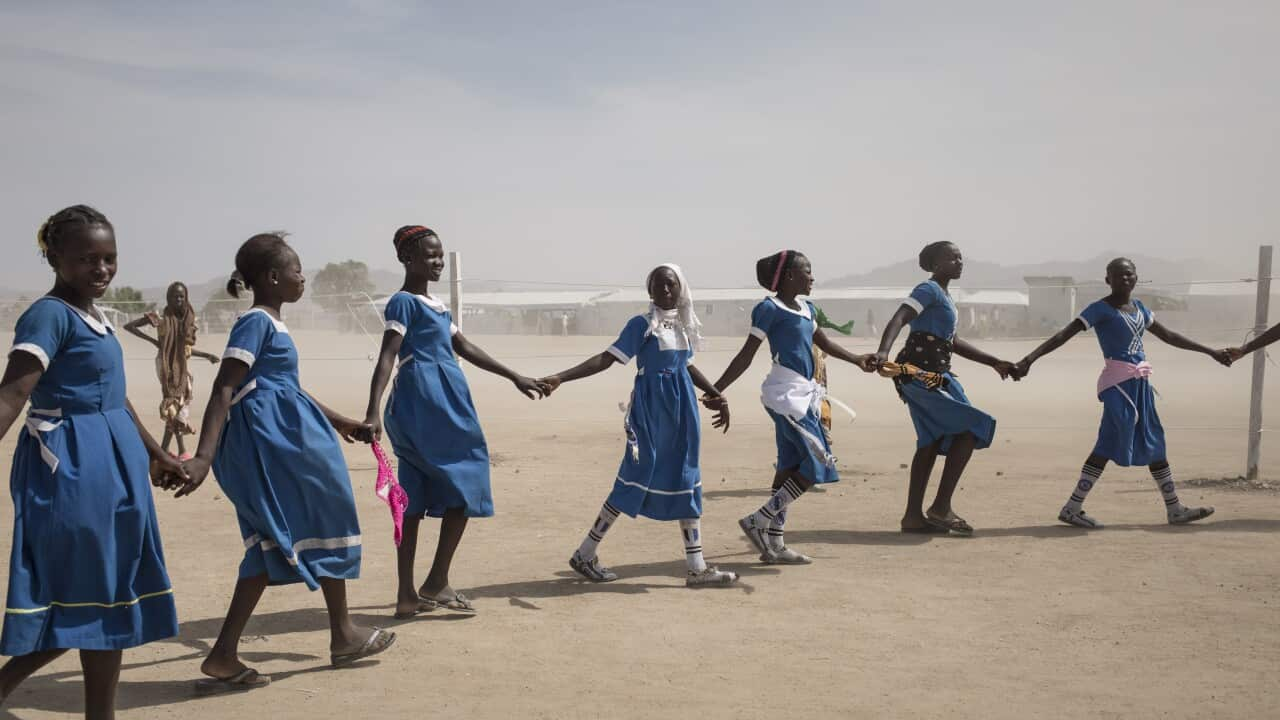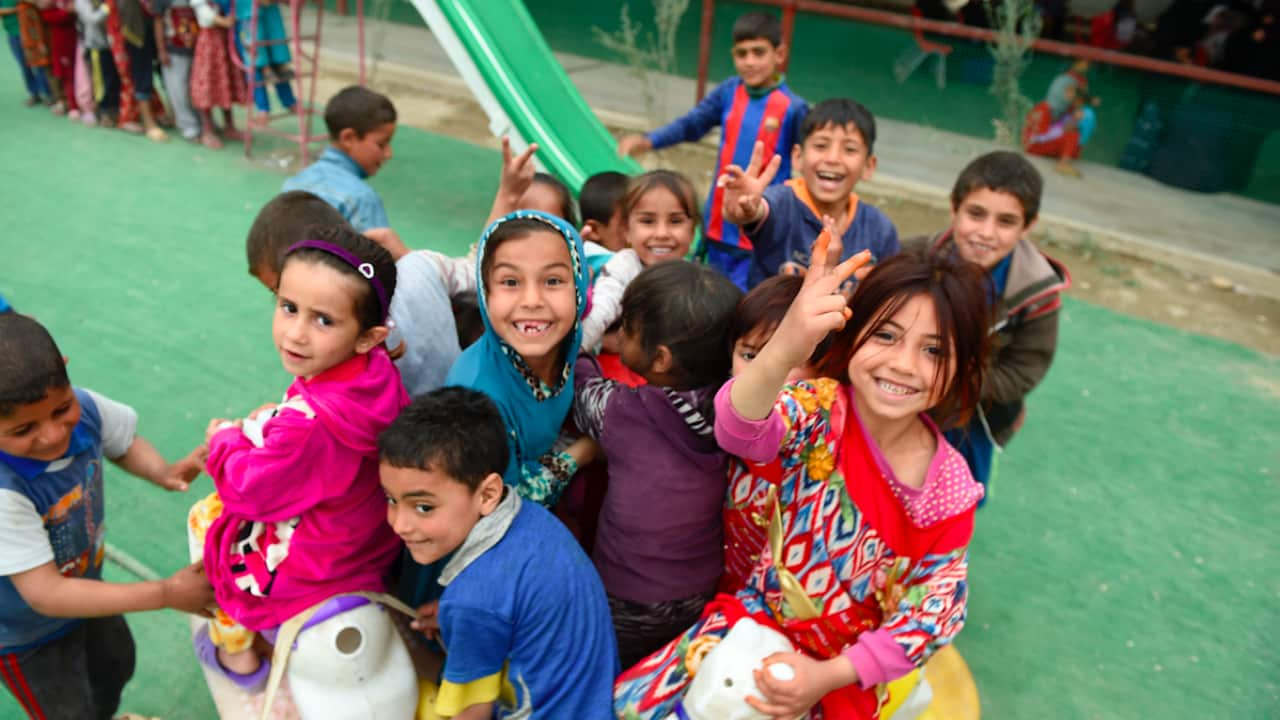Take a minute to think about all the food you eat in one day.
Yesterday, for example, I ate porridge for breakfast, sushi for lunch, and kangaroo and roast vegetables for dinner. I had a flat white in the morning, an apple and some almonds in the afternoon, and finished off the day with cake, a scoop of ice cream and a glass of red wine.
Now, imagine living in a refugee camp, where your weekly rations are limited to rice, lentils, dried chickpeas, tinned sardines, kidney beans and vegetable oil. No red meat, no fresh produce, no snacks and no variety.
Every refugee situation is quite different.
Participants in the , a fundraising initiative that coincides with in June, live off these provisions for one week to raise money for refugee programs around the world.
In 2014, Ration Challenge founder Karen McGrath visited the Mae La refugee camp on the Thai-Myanmar border, home to thousands of displaced people who have fled ethnic conflict in Myanmar. “We were there to interview families, take photos, and gather stories from the camps and bring it back to Australia to fundraise for our charity Act for Peace,” she says.
McGrath was shocked at the meagre rations distributed to the camp’s inhabitants. Over dinner, she and a colleague challenged each other to try living off a similar diet when they returned to Australia to see how it felt.
That experiment grew into the Ration Challenge. In 2014, its pilot year, around 100 people took part and raised $60,000. This year, McGrath expects 14,000 people to sign up for the challenge. So far nearly $2 million has been raised, money that will be spent on necessities like food, water and health care.
READ MORE

In pictures: The world's refugees
Ration Challenge also funds education programs for young Syrian refugees who are unable to attend crowded and under-resourced schools in Jordan. “We run informal education sessions that allow children to still learn to read and write,” says McGrath.
Also supported are livelihood programs, where women learn to develop products like woven scarves and carpets that they can sell in Jordan to supplement their income and reduce their reliance on food aid, and psycho-social support, designed to help refugees deal with the trauma of fleeing conflict.
Rations are usually distributed by international NGOs and smaller local agencies. “Every refugee situation is quite different,” says McGrath. The means that rations there are very limited. In camps on the Thai-Myanmar border, provisions might include rice, fish paste, oils and split peas. Ration Challenge uses rations distributed in Jordanian refugee camps as its model.
Markets in nearby towns may sell fresh fruit and vegetables, but often the camp residents don’t have the financial resources to buy them. “If they do have money, a lot of the families try and direct it towards health care, which is so vital, especially in the winter, or towards education for their kids,” says McGrath.
When designing the challenge, Act for Peace sought the advice of the World Health Organisation as well as local medical professionals. “It does have a drastic impact on your health,” McGrath says, but “we only do it for a week, so after that your body is able to adjust and recover.”
Ration Challenge is not open to pregnant women, people with health complications or those under the age of 18, although young people can still take part. At school, children might come together for a meal of refugee rations and reflect on that as a class, says McGrath. “A lot of families are asking their kids to have a small lunch or dinner, so to just have rice, and chat about it as a family.”
McGrath has grave concerns about the effect limited rations and a lack of fresh food have on children living in refugee camps. It “creates huge issues with malnutrition, stunted growth, stunted intellectual development,” she says.
We only do it for a week, so after that your body is able to adjust and recover.
Adults living on the rations may experience poor concentration, low energy and low mood. McGrath found the mental effects surprising. “It makes you constantly think about not having enough food,” she says.
Christina, a business analyst for a software company, completed the Ration Challenge in 2016. The 26-year-old German expat found that the time-consuming preparation required for each meal was one of the most difficult aspects of the challenge. Every morning she had to get up earlier than usual to cook rice, the only food that appealed to her for breakfast. She also missed the “treats” that we often use to punctuate our days – coffee, chocolate or a smoothie after the gym.
McGrath says the Ration Challenge aims to show refugees and people around the world that people in Australia care. “That as Australians, we want to do more, we want to put up our hand to help those who have less than us.”
will be held on Tuesday 20 June and will be run nationwide from Sunday 18 June. To mark the occasion, SBS On Demand will feature a number of groundbreaking and moving shows capturing refugee stories throughout the week. Here's what's showing:
- The documentary, Baulkham Hills African Ladies Troupe.
- The Insight episode 'Getting Better’ focusing on Yordanos’s healing journey (one of the troupe's members).
- A special episode of Dateline, ‘Daughter of Sierra Leonne’ (the story of Aminata, who is also from the troupe).
- Black Market: Syrian Refugee Girls.
- The Forgotten Orphan Refugees.




